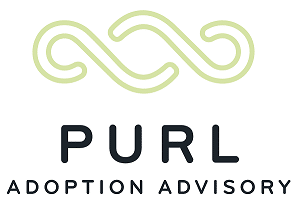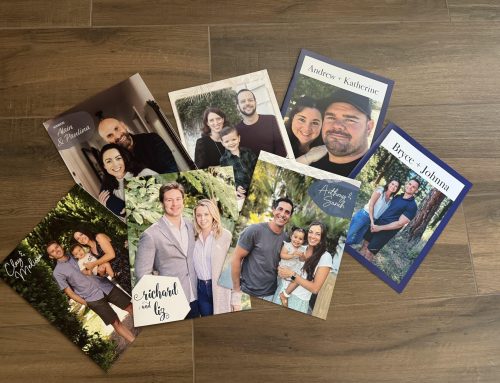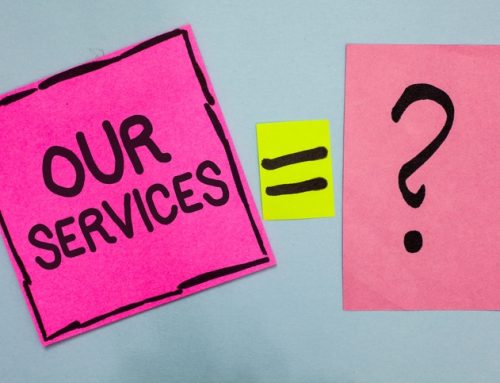
Did you know that there are a lot of organizations that are available to help fund your domestic infant adoption through adoption grants? As we have discussed before, domestic infant adoption costs are high, and have been increasing dramatically in the last few years, as it seems everything is!
The costs you might see in a domestic infant adoption will vary considerably depending on the type of adoption (private/independent, attorney, or agency adoption) and the state from which you are adopting. The adoption professionals that are helping to match expectant mothers that we refer to typically have adoption opportunities with total costs ranging between $14,000 and $55,000, with the majority falling between $35,000 and $50,000.
So how to pay for adoption?!! Adoptive families can raise or offset the cost of adoption in many ways: adoption loans, grants, credits, exemptions, subsidies, and creative adoption fundraising (click here for an article about the pros/cons of fundraising). Today, we are going to be discussing adoption grants.
Adoption grants are a great source of funding for your adoption. Most adoption grant applications require a completed home study, an application fee and other application documents. Most awarded grants are paid directly to the attorney or agency you will take placement through, and many won’t consider you for a grant until after you’ve been matched with a child. Grants are usually awarded to families that have total gross income of less than $120,000, but some exceptions do exist, particularly if you are adopting a child with special needs (which can sometimes include drug/alcohol exposure in utero). But even if your gross income is higher than $120,000, if you are religious, some religious based organizations are concerned less with your total income, and are instead focusing on your faith.
Note that some grant organizations will only award a grant if you are adopting through a non-profit entity, so you’ll need to pay attention to the organization’s requirements closely, and it may end up determining which entity you decide to use for your adoption, or what grants you apply for. There may also be grants that are available only to residents of certain states, so be sure to do your research on grants that might be available to you in your state.
Here are just a few of the grants that our Purl Families have received in the last few years:
Non-Religious: Gift of Adoption, HelpUsAdopt, A Child Waits
Religious: Show Hope, Pure Gift of God, Lifesong
One thing that we think is really important when applying for grants is to draft your application specifically for the entity you are applying for and to pay close attention to any specific instructions or deadlines for applying (based on a specific date or where you are in your adoption, i.e. before placement, before finalization). You will want to do research on the entity awarding the grant, and pay special attention to the organization’s mission, and what types of adoptions they are regularly funding. Sometimes the organization is focused on a geographic area, a type of family, or someone who has experienced infertility previously, or a specific religion and how you plan to raise your child as a child of faith. You’ll want to make sure you’re specifically discussing the things that are important to that organization in your application, so this is not the place to just copy and paste between applications, without revising the application specifically for the entity. This can be time consuming, but it is definitely worth it in the end!
For example, Gift of Adoption is a provider of adoption assistance grants without regard to race, religion, age, marital status, or sexual orientation. There is no application deadline, prospective adoptive parents can apply any time after completing their home study (and in some rare cases you can apply without a home study), and before finalization. For domestic infant adoption, they prioritize grants that:
- Help keep children who are in or at risk of entering the foster care system from entering the foster care system (this includes relative and kinship adoptions).
- Unite biological siblings or prevent them from being separated.
Given these priorities, for an application for a grant from Gift of Adoption, you might want to discuss the reasons why this child is avoiding the foster care system due to this specific adoption (drug/alcohol exposure in utero, previous CPS involvement by this expectant mother so now she’s choosing private adoption, etc.). If there is some expected medical complications, you’ll want to discuss that as well.
Gift of Adoption also has specific grants for families living in specific geographic areas, including, but not limited to, families living in the Houston Metro area, in New England, or Oregon. So, if you’re from one of these areas, you’re going to want to highlight that in your application as well. For this specific grant organization, you’ll apply once you’re home study approved, but you won’t be awarded a grant until you’ve been matched with a child and have updated the entity about the circumstances of the child you’re expecting to adopt. You won’t be awarded the grant directly, it will be sent directly to the adoption professionals you’re working with, after you’ve taken placement of the child to reduce your liability. It is really important to understand the process and priorities of each entity, craft your application and your story specifically for each entity, and be sure follow their instructions closely to be the most successful in receiving grants.
Our Purl Families receive an exhaustive list of adoption grants as part of our services, and our Purl Families can utilize one of their 5 customized coaching calls just to discuss grants. We are happy to share our experience with grant organizations and inform our families what entities we think they’ll l be successful with based on their family makeup, religion and the type of child they matched with and we can give guidance on the wording in the grant applications. We have routinely had Purl families receive much more in grants than it costs to work with us, even though this is just one of the services we offer!
We hope this gives you a small glimpse into one way of affording domestic infant adoption today. To become a Purl Family, please complete this form to schedule a free consultation.

Did you know that there are a lot of organizations that are available to help fund your domestic infant adoption through adoption grants? As we have discussed before, domestic infant adoption costs are high, and have been increasing dramatically in the last few years, as it seems everything is!
The costs you might see in a domestic infant adoption will vary considerably depending on the type of adoption (private/independent, attorney, or agency adoption) and the state from which you are adopting. The adoption professionals that are helping to match expectant mothers that we refer to typically have adoption opportunities with total costs ranging between $14,000 and $55,000, with the majority falling between $35,000 and $50,000.
So how to pay for adoption?!! Adoptive families can raise or offset the cost of adoption in many ways: adoption loans, grants, credits, exemptions, subsidies, and creative adoption fundraising (click here for an article about the pros/cons of fundraising). Today, we are going to be discussing adoption grants.
Adoption grants are a great source of funding for your adoption. Most adoption grant applications require a completed home study, an application fee and other application documents. Most awarded grants are paid directly to the attorney or agency you will take placement through, and many won’t consider you for a grant until after you’ve been matched with a child. Grants are usually awarded to families that have total gross income of less than $120,000, but some exceptions do exist, particularly if you are adopting a child with special needs (which can sometimes include drug/alcohol exposure in utero). But even if your gross income is higher than $120,000, if you are religious, some religious based organizations are concerned less with your total income, and are instead focusing on your faith.
Note that some grant organizations will only award a grant if you are adopting through a non-profit entity, so you’ll need to pay attention to the organization’s requirements closely, and it may end up determining which entity you decide to use for your adoption, or what grants you apply for. There may also be grants that are available only to residents of certain states, so be sure to do your research on grants that might be available to you in your state.
Here are just a few of the grants that our Purl Families have received in the last few years:
Non-Religious: Gift of Adoption, HelpUsAdopt, A Child Waits
Religious: Show Hope, Pure Gift of God, Lifesong
One thing that we think is really important when applying for grants is to draft your application specifically for the entity you are applying for and to pay close attention to any specific instructions or deadlines for applying (based on a specific date or where you are in your adoption, i.e. before placement, before finalization). You will want to do research on the entity awarding the grant, and pay special attention to the organization’s mission, and what types of adoptions they are regularly funding. Sometimes the organization is focused on a geographic area, a type of family, or someone who has experienced infertility previously, or a specific religion and how you plan to raise your child as a child of faith. You’ll want to make sure you’re specifically discussing the things that are important to that organization in your application, so this is not the place to just copy and paste between applications, without revising the application specifically for the entity. This can be time consuming, but it is definitely worth it in the end!
For example, Gift of Adoption is a provider of adoption assistance grants without regard to race, religion, age, marital status, or sexual orientation. There is no application deadline, prospective adoptive parents can apply any time after completing their home study (and in some rare cases you can apply without a home study), and before finalization. For domestic infant adoption, they prioritize grants that:
- Help keep children who are in or at risk of entering the foster care system from entering the foster care system (this includes relative and kinship adoptions).
- Unite biological siblings or prevent them from being separated.
Given these priorities, for an application for a grant from Gift of Adoption, you might want to discuss the reasons why this child is avoiding the foster care system due to this specific adoption (drug/alcohol exposure in utero, previous CPS involvement by this expectant mother so now she’s choosing private adoption, etc.). If there is some expected medical complications, you’ll want to discuss that as well.
Gift of Adoption also has specific grants for families living in specific geographic areas, including, but not limited to, families living in the Houston Metro area, in New England, or Oregon. So, if you’re from one of these areas, you’re going to want to highlight that in your application as well. For this specific grant organization, you’ll apply once you’re home study approved, but you won’t be awarded a grant until you’ve been matched with a child and have updated the entity about the circumstances of the child you’re expecting to adopt. You won’t be awarded the grant directly, it will be sent directly to the adoption professionals you’re working with, after you’ve taken placement of the child to reduce your liability. It is really important to understand the process and priorities of each entity, craft your application and your story specifically for each entity, and be sure follow their instructions closely to be the most successful in receiving grants.
Our Purl Families receive an exhaustive list of adoption grants as part of our services, and our Purl Families can utilize one of their 5 customized coaching calls just to discuss grants. We are happy to share our experience with grant organizations and inform our families what entities we think they’ll l be successful with based on their family makeup, religion and the type of child they matched with and we can give guidance on the wording in the grant applications. We have routinely had Purl families receive much more in grants than it costs to work with us, even though this is just one of the services we offer!
We hope this gives you a small glimpse into one way of affording domestic infant adoption today. To become a Purl Family, please complete this form to schedule a free consultation.



